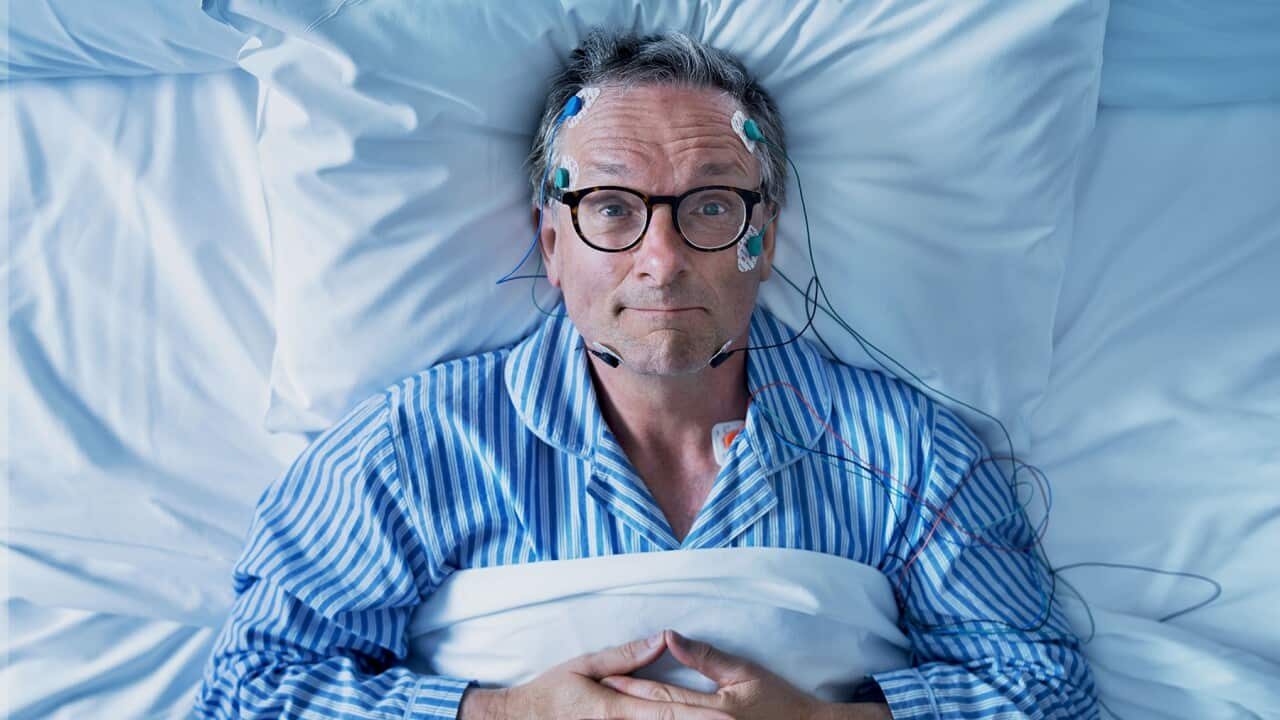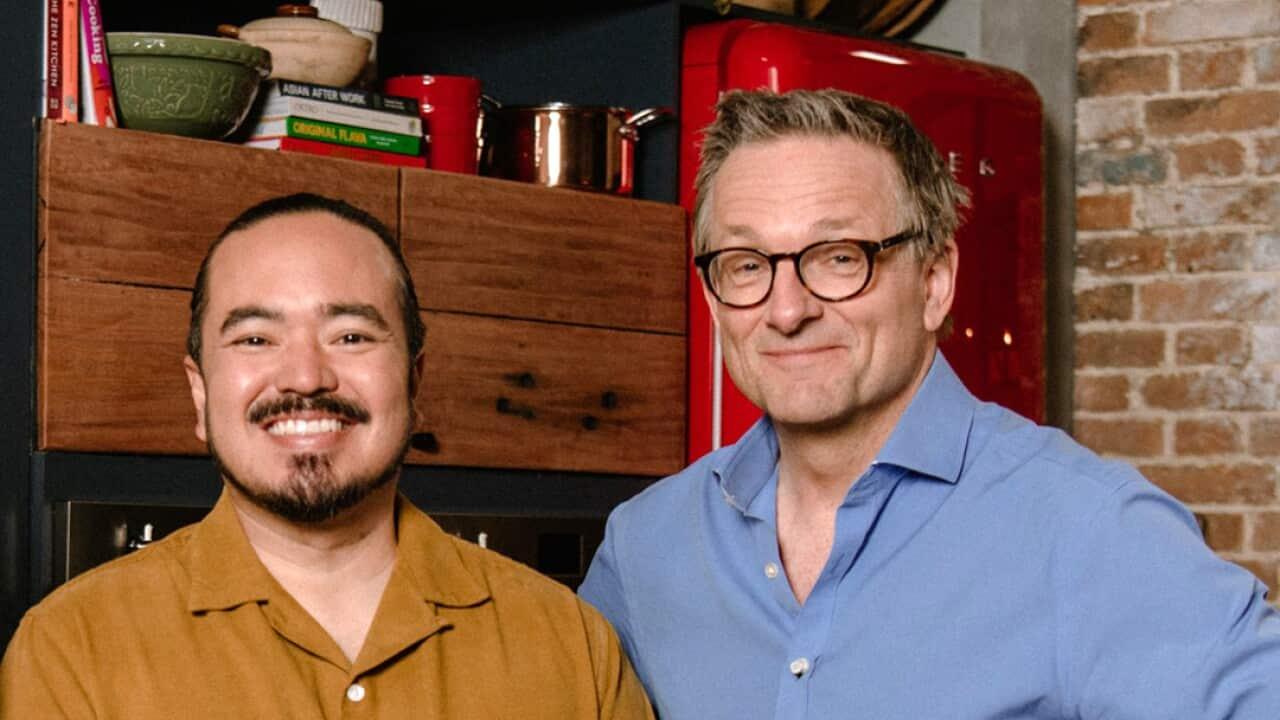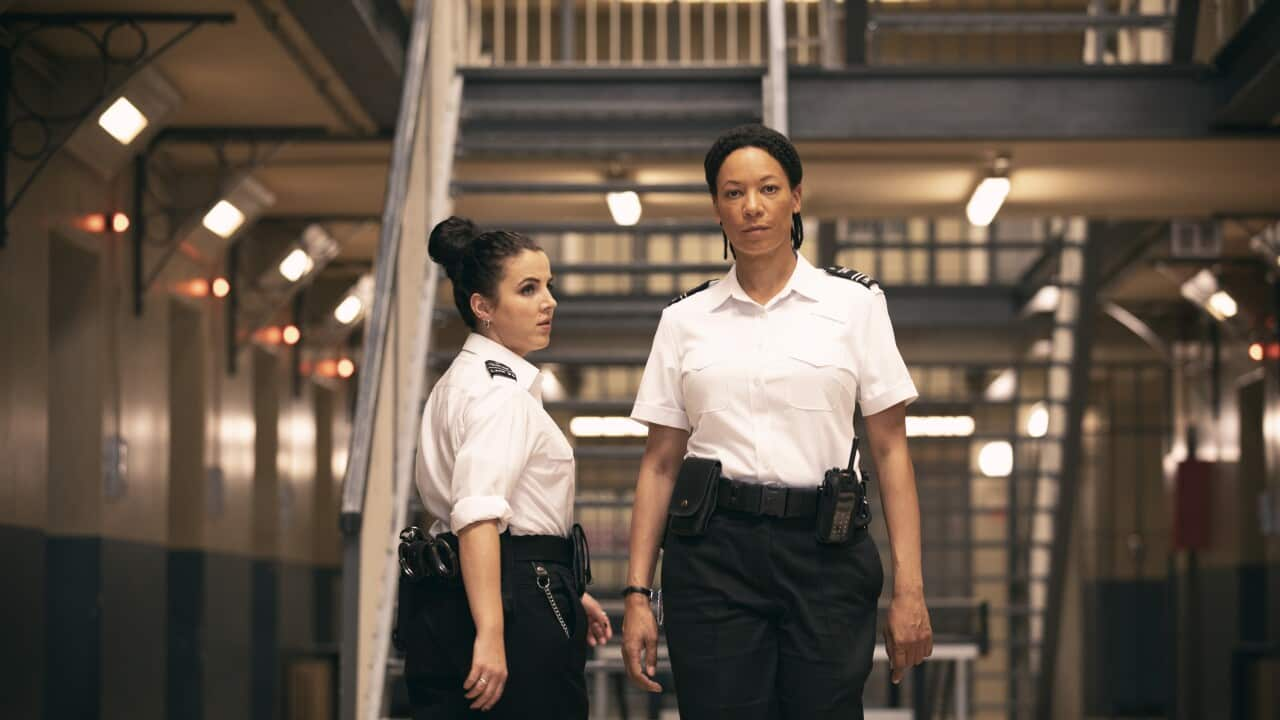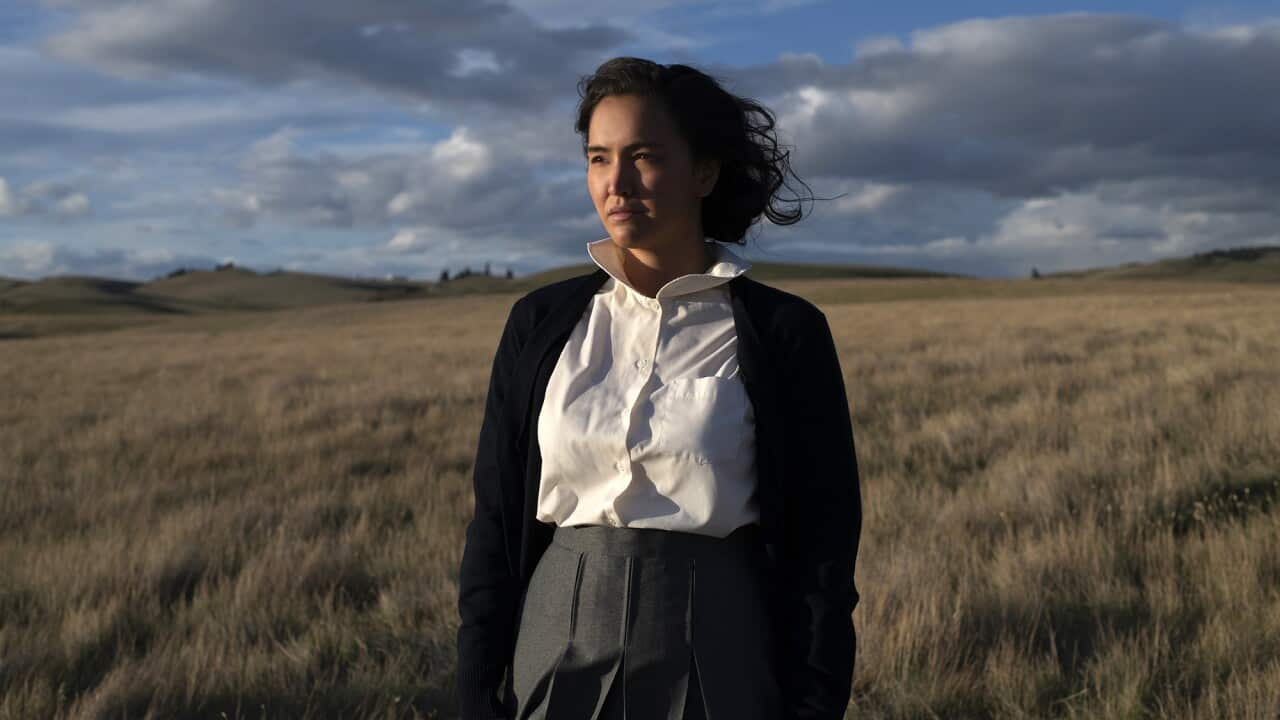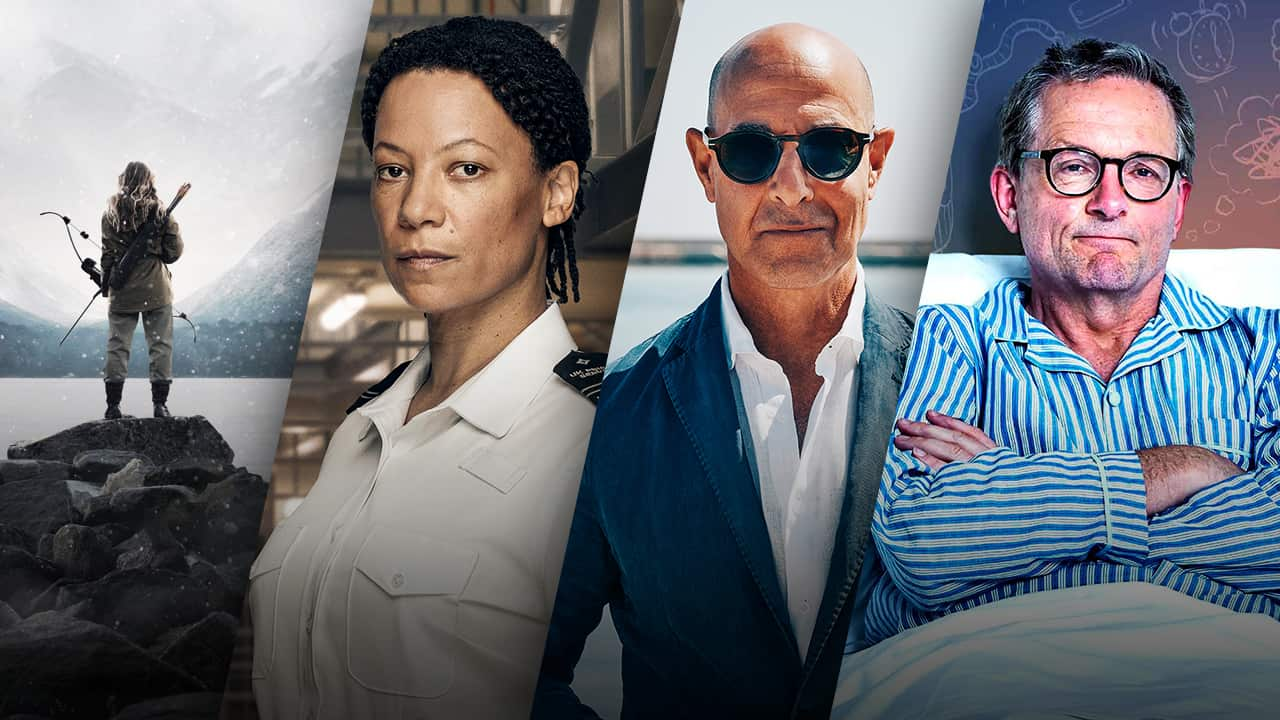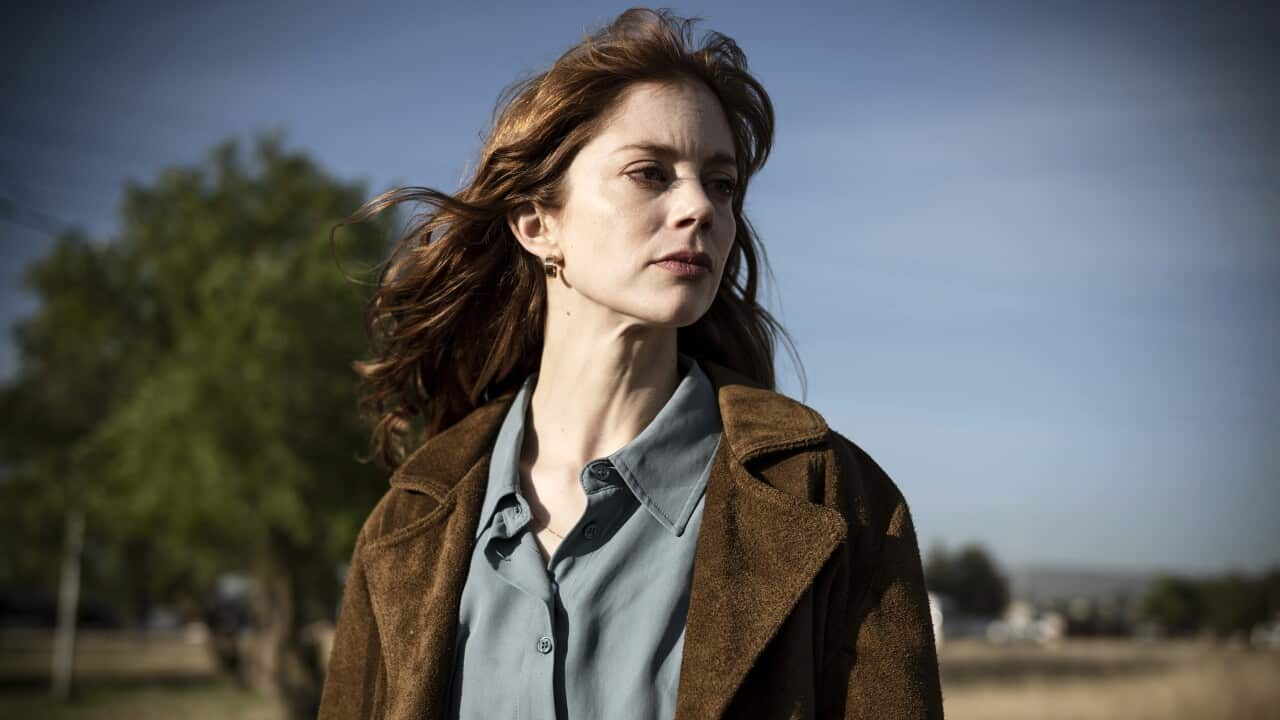Since her late teens, Katherine Barrett has had an ongoing struggle to get a decent night’s sleep. She’s not alone: approximately four in ten Australians .
But the producer of three-part SBS documentary series Australia’s Sleep Revolution with Dr Michael Mosley has since discovered that her issue is probably not what she always thought it was.
“I kind of built this whole narrative in my head that I’m really noise sensitive and that I’ve got this heightened sensitivity that wakes me up,” Barrett tells SBS.
“Through the course of doing this show, and what I’ve learned about sleep, however, I think I may actually have sleep apnoea. I always thought it was panic attacks. Many people suffered sleep apnoea on the trial and they didn’t know it.”

Flinders University's Professor Danny Eckert reviews patient progress with series producer Katherine Barrett during filming. Credit: Artemis Media
The clinical trial she mentions is the foundation of the three-part documentary that sees Barrett and her team set out to interrogate the potential effects of not only sleep apnoea, but a wide range of sleep-related issues.
As they take a deep dive into all things shuteye, following the work of a team of scientists at Flinders University’s , a number of the participants come to the same conclusion as Barrett; perhaps what they thought was keeping them up at night isn’t the whole story.
With British TV presenter Michael Mosley at the helm, the series uses the data collected to analyse the experiences of a diverse group of 30 Australians, all with one thing in common: they can’t remember the last time they had a proper night’s rest.
“For Michael Mosley, it’s a subject that is also very personal to him as he has suffered insomnia for many years, so he was genuinely very keen to get involved,” Barrett explains.
“He was interested to see how the sleep scientists were planning to treat him and the 30 others in the cohort, who, like so many Australians, considered themselves incurable.”
The documentary presents unique challenges, not least because of the wide-ranging and complex conditions faced by the participants, but also the technical expertise required of the crew in following their journey. As they track the group across the three-part series, from their first sleep study, through to their meetings with the scientists at Flinders University’s FHMRI Sleep Health, and at various stages during the trial, the documentary’s team offers viewers unparalleled insight into each individual’s experience.

Study participant Priyanaka wearing 're-timer' therapy glasses, as part of her insomnia treatment. Credit: Artemis Media / Ian Routledge
“The world-first element of the trial was the rigour of the technology and the in-home monitoring,” Barrett says. “Because we are unconscious when we sleep, there’s so much going on that, in other health circumstances, can be detected more easily, but because we are unconscious and at home, it’s often quite hard to get to the bottom of what’s going on.”
“The biggest challenge for us as television makers was really gaining the trust of the participants to allow us to film them while they were asleep.”
It was the vulnerability of the participants in sharing their journey throughout the experiment that saw the scientific and the personal converge, as each reflected on the circumstances that had brought them to this point, shining a light on the extensive consequences of ineffective sleep.
“When we sleep, it’s static, so you’ve got limited storytelling potential there, but we were very fortunate with our core group of eight participants, and Michael Mosley being nine, in that they were very open to talk about their personal and private struggles,” Barrett says. “That allowed us to really balance the science and create a compelling story.”
It wasn’t just those in front of the camera who found themselves reflecting on their journey with sleep. Barrett says a welcome side effect of working on the series was that she and her team felt more open to talking about their own challenges while on set, swapping tips and tricks that have helped them navigate periods of poor-quality sleep.
It’s something that really is so important to our wellbeing.
“The subject of sleep is rather taboo and it shouldn't be!” she tells SBS. “I loved talking more openly with the team about our own sleeping habits and tricks we used to get to sleep.”
“I suffer terrible insomnia, and all kinds of wacky sleep problems, and so do some of my colleagues, and it was just nice to be able to come into work and say ‘I had a dreadful night’s sleep’ and be more open about how wrecked you might feel.
“So often you don’t want to admit how exhausted you actually are. It was a nice change.”

Australia's Sleep Revolution with Dr Michael Mosley. Credit: SBS
It’s hoped that, for viewers, the documentary will prove to be just as effective in starting a conversation about sleep, encouraging all Australians to reassess the value they place on getting enough rest, and help people understand some of the common sleep conditions, such as insomnia and sleep apnoea.
“We’ve all experienced how even short bursts of poor sleep can affect your mental health and physical health,” Barrett tells SBS.
“We’re really hoping that sleep will start to be viewed as the third pillar of health, along with diet and exercise. It’s something that really is so important to our wellbeing.”
Australia's Sleep Revolution with Dr. Michael Mosley premieres Wednesday 6 March and airs at 7.30pm the same day on SBS, with episodes following weekly. Episodes will be available at SBS On Demand with subtitled versions available in Arabic, Simplified Chinese, Traditional Chinese, Vietnamese and Korean.

